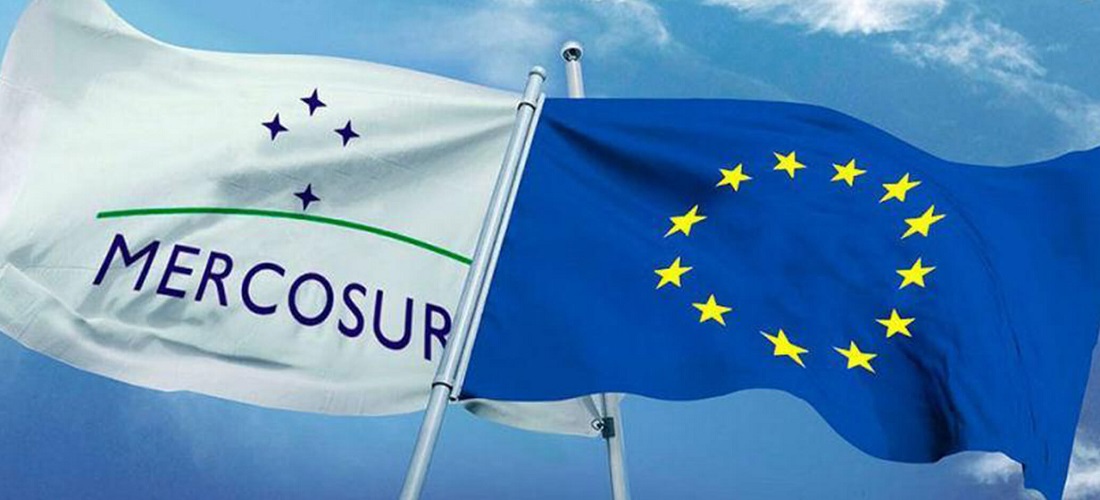
Export opportunities set to double with EU agreement
Dec, 11, 2024 Posted by Denise VileraWeek 202447
The agreement between Mercosur and the European Union, if finalized, is set to boost Brazilian exports to preferential markets from 13.8% to 27.4%. During an interview with Valor, this projection was shared by Tatiana Prazeres, foreign trade secretary at the Ministry of Development, Industry, Trade, and Services (MDIC), coinciding with the release of the agreement’s final texts by both Mercosur and the EU. The treaty was officially announced last Friday (7).
According to Secretary Prazeres, the EU-Mercosur agreement is in an “advanced” stage of legal review. Once this phase is completed, the text must be translated into the EU’s 23 official languages as well as Portuguese and Spanish for Mercosur. The Brazilian government anticipates that the treaty will be signed in the second half of next year. After signing, the agreement requires ratification by 65% of the European Council, representing 55% of the EU’s population, and a simple majority in the European Parliament to come into effect. Secretary Prazeres noted that the agreement allows for bilateral application, meaning it can be enforced between the EU and individual Mercosur countries, even if not all Mercosur members ratify it simultaneously.
“If the European Union and Brazil, for example, ratify it, there’s no need to wait for other Mercosur members,” she explained.
On the terms of the agreement, which was published on Tuesday, Secretary Prazeres emphasized the positive outcome for Brazil, particularly in terms of sustainable development. She highlighted new rules grounded in World Trade Organization (WTO) jurisprudence that ensure “sustainability measures” do not function as disguised trade restrictions. Additionally, a mechanism will be established to resolve disputes if future legislation changes in either bloc threaten trade flows. This will rebalance the agreement.
Below are the main points from his interview with Valor:
Increase in exports
“Currently, only 13.8% of Brazilian exports go to countries with preferential trade agreements. This deal will push that percentage to 27.4%, providing Brazilian products with significantly enhanced access to foreign markets. Combined with Mercosur’s agreement with Singapore last year, the figure rises to nearly 30%. This means Brazilian businesses can compete under more favorable terms than their competitors, making these markets more attractive for companies that have not yet ventured into exports.”
The chart below shows which products were the most exported in containers from Brazil to European ports in 2024. The data is derived from DataLiner, a Datamar product.
Top Most Exported Goods to Europe | 2024 | TEUs
Source: DataLiner (click here to request a demo)
Brazil’s outcomes in the agreement
“In terms of sustainable development, the EU agreement delivers clear benefits for Brazil. There’s no doubt about that. Over various negotiation rounds, we secured balanced and reasonable commitments while ensuring parameters to prevent misuse. The agreement incorporates concrete references that will enhance our ability to defend Brazilian commercial interests in the European Union. Trade-related sustainability measures will need to align with WTO rules and cannot serve as disguised trade restrictions. WTO jurisprudence will guide when a measure constitutes such a barrier, ensuring balanced enforcement.”
National data
“The EU has agreed to use official data from Mercosur countries, including deforestation statistics, to evaluate compliance with the exporting country’s legislation. For example, Brazilian data will be the reference point for assessing adherence to Brazilian laws. While this may seem self-evident, it’s far from guaranteed in today’s global context. Ensuring the recognition of national data was a significant demand from Mercosur.”
Bioeconomy
“The EU has also committed to enhancing market access for bioeconomy and low-carbon products, with the specifics to be negotiated. We have always focused on framing trade and sustainability discussions as a win-win agenda, steering away from punitive approaches.”
Relationship with the Paris Agreement
“If any country withdraws from the Paris Agreement, it could face suspension from the Mercosur-EU agreement. By establishing this link, we reinforce multilateralism and raise the stakes for any country contemplating leaving the Paris Agreement. This is particularly meaningful for Brazil, as we are deeply committed to the sustainability agenda, the Paris Agreement, and hosting the United Nations Climate Change Conference (COP) next year.”
Resolving deadlocks
“We’re navigating an environment marked by significant uncertainty and new EU legislative initiatives that could impact bilateral trade and disrupt the negotiated balance. To address this, we’ve introduced an arbitration mechanism to resolve disputes if unilateral measures compromise concessions made under the agreement. Based on the arbitration decision, the parties will aim to establish an agreement that prioritizes fostering increased trade. For instance, if my market access is restricted and an arbitration tribunal determines that my expectations have been frustrated by a certain amount, the other party must provide additional concessions. Ideally, these would be in the same sector, but if not feasible, they could be in other sectors. This approach leverages the dispute settlement chapter of the agreement without requiring proof of outright violations. If no agreement on compensation is reached, the aggrieved party can implement retaliatory measures. The arbitration process involves each party appointing an arbitrator, who then selects a third. The panel will assess whether there has been an imbalance, quantify the extent, and assign a monetary value. From there, the parties will negotiate a resolution to positively rebalance trade. This process avoids mandating the withdrawal of contested measures, focusing instead on recalibrating the agreement to maintain fairness.”
Source: Valor Econômico
-
Ports and Terminals
Nov, 30, 2022
0
Santos Brasil starts operating liquid bulk at the Port of Itaqui
-
Trade Regulations
Jun, 04, 2021
0
Mexico opens market for Brazilian milk, dairy products, and sesame
-
Jan, 11, 2022
0
Fruit exports from Brazil exceed US$ 1 billion in 2021
-
Economy
Jun, 23, 2023
0
Argentina announces 1.3% GDP growth in the 1st quarter



